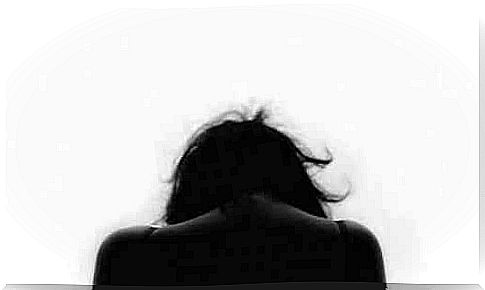Atypical Depression Is A Difficult Problem To Diagnose

Atypical depression is a subcategory of major depression. This condition is very difficult to diagnose as its symptoms may resemble signs of common problems such as fatigue, stress or even metabolic disorders.
Sometimes when it comes to emotional problems, it’s worth noting that people aren’t always fully aware of what’s going on for them. Moreover, human problems are not necessarily just about simple exhaustion or going through difficult times.
The doctor is undoubtedly the first person to notice such symptoms. It is important to remember that the symptoms of atypical depression may sometimes show up as the accumulation of excess weight or drowsiness.
So this time, we want to tell you more about this problem and highlight the symptoms of atypical depression that you should pay attention to if you or someone close to you is experiencing them.
Atypical depression – when the body is hurt, as the soul suffers
Most health care professionals use basic symptom search to identify depression: recurrent negative thoughts, feelings of helplessness, insomnia, and suicidal thoughts.
Based on this, a more accurate diagnosis can then be made to determine the type of depression. Thus, the drug and therapeutic treatment that should be provided to the patient can be determined.
However, atypical depression is not as clear-cut until a person has suicidal thoughts. Naturally, this is an alarm signal to which both the patient and this family should respond by seeking help.
Before that, however, it has already happened that the patient’s quality of life has suffered in significant ways.
Then take a closer look at some of the fundamental features of atypical depression – keep reading so you can react to yourself or your loved ones when needed!

Physical symptoms
Those people with atypical depression often gain extra pounds without knowing the reason for this.
It doesn’t just mean that hunger and anxiety are more prevalent than normal. Namely, human metabolism really changes, and this naturally makes fat accumulation easier.
Another common symptom is fatigue and physical pain, and this is especially true of the arms and legs. They may feel really heavy, and at some times of the day it can be difficult to move around.
This exhaustion causes a person to have little or no desire to be a part of taking care of daily chores. Eventually, he may become isolated from ordinary social activities.
Hypersomnia
When a person has atypical depression, he or she may sleep for extremely long periods of time.
Sufferers of this problem may sleep up to ten hours in a tube. This makes them in a state of constant exhaustion as well as feeling weak. In addition, a person perceives his reality to be like a dream he cannot control.
Hypersensitivity
This mood disorder makes a person irritated, moody, and unable to experience positive emotions.
He may see comfort, relaxation, laughter, and celebration as distant things, and people who have fun may feel annoying or even incomprehensible.
And on top of all this, a person often begins to have thoughts of disaster. However, he believes that whatever he does will end badly, so there is nothing worth doing or reacting. The person feels unable to control anything.

A time of great distress
Increased anxiety is also a thing associated with this type of depression.
Oddly enough, a person suffering from atypical depression is well aware of how defenseless he or she is. She feels bad because of this, which causes her to reject herself – this then creates even more anxiety.
It is common to experience times of calm and exhaustion, as well as times of stress, nervousness, and anxiety.
Naturally, this can have a major impact on a person’s work and social life.
What causes the development of atypical depression?
This type of depression affects both men and women.
As is always the case with this type of illness, there are those who ask for help, as well as those who are better able to control their condition and get emotional relief.
On the other hand, there is no particular and only reason for a person to develop atypical depression. It is a reality with many facets.
Let us then take a closer look at the possible causes of this disturbance.
Possible causes of atypical depression
This condition is often the cause of human hereditary factors.
So if your parents had this disease, you have a higher risk than usual to get it yourself if something difficult comes up in your life. Such a situation may be a loss, separation, traumatic situation, or the like.
Experts explain that usually this disease develops as a combination of two factors: accident or trauma, and also the susceptibility to depression produced by hereditary factors.
Sometimes then this can be the result of a person doing too much too many things. Internal family problems, unhappiness, daily stress, and difficulty learning to control one’s emotions are things that can trigger this type of state of mind.

Care
This disease is treated multidimensionally, which includes medication, psychological therapy, social support, and lifestyle changes.
Atypical depression usually develops and disappears over a two-year period.
However, this is a subclass of major depression, which means that a person has a challenge that requires the supervision, patience, and sympathy of close family members and friends.









